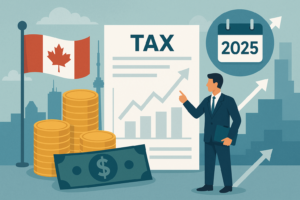A Thought Piece by Daryl Ching
Across Canada, an invisible crisis is quietly unfolding in boardrooms, back offices, and shop floors: thousands of baby boomer entrepreneurs are preparing to retire, but many are discovering too late that their businesses aren’t worth what they thought.
For decades, these owners built companies from scratch: family-run manufacturers, contractors, distributors, and service firms that powered local economies. They created jobs, supported communities, and took pride in building something lasting. But when the time finally comes to sell, many are shocked by the offers they receive.
What they believed was a million-dollar legacy is sometimes valued at a fraction of that. Years of hard work, sacrifice, and risk reduced to a disappointing number on a spreadsheet.
The Harsh Reality Behind the Numbers
A 2025 report by MNP LLP found that 64% of Canadian business owners have thought about succession but have no formal plan, while another 21% haven’t started at all. That means thousands of businesses, many of them the cornerstone employers in their communities, are at risk of fading away.
And it’s not just about planning. A major, often overlooked factor is how these businesses have been managed financially.
Take the case of a small Ontario manufacturer. For years, the owner focused on minimizing taxes, a strategy most small business accountants encouraged. By expensing aggressively and keeping reported profits low, the company showed $100,000 in annual profit, paying around $10,000 in corporate tax.
It seemed smart at the time. But when the owner decided to sell, buyers and lenders assessed the company based on its historical financials. At a typical 5x profit multiple, the valuation came in around $500,000, far less than the owner expected.
Now, imagine the same business restructured for sale. Non-essential expenses are trimmed, personal costs removed, and assets properly capitalized. Profit rises to $500,000. The owner pays more tax, about $50,000, but the valuation jumps to $2.5 million.
By focusing on short-term tax savings of $40K, the owner had unintentionally cost themselves $2 million in enterprise value. It’s a devastating realization, one that’s playing out across Canada right now.
The Human Toll
Beyond the financials lies a deeply human story. Many of these entrepreneurs have spent 30 or 40 years building their companies, often working six or seven days a week. They missed family events, mortgaged their homes, and kept employees on payroll during downturns.
Now, as they look to retire, they face the painful truth that their business, their life’s work, isn’t transferable, or isn’t worth enough to support their retirement.
Some are forced into distressed sales. Others shut down entirely, leaving employees jobless and communities without once-stable anchors. The emotional toll is immense: pride turns to regret, and years of success feel erased by a single disappointing valuation meeting.
What’s at Stake for Canada
The issue extends far beyond individual owners. SMEs employ nearly two-thirds of Canada’s private workforce, roughly 7.8 million people. When these businesses close, communities lose jobs, local economies contract, and critical know-how disappears.
Canada’s entrepreneurial foundation risks crumbling not because of market forces, but because owners didn’t prepare early enough to transition or properly present the true value of their companies.
The Way Forward
The good news: this outcome isn’t inevitable. Owners can take practical steps to protect and grow the value of what they’ve built.
- Start planning early. Succession planning should begin five years before retirement, not five months.
- Show real profitability. Work with financial advisors to normalize earnings and adjust tax strategies, even if it means paying more tax now for a far higher sale price later.
- Build management depth. Empower key staff to take leadership roles, reducing the company’s reliance on the owner.
- Modernize operations. Invest in technology and process efficiency to attract professional buyers and investors.
The Bottom Line
Baby boomer entrepreneurs transformed Canada’s economic landscape. But without a thoughtful exit strategy, many risk watching their legacy slip away.
The paradox is painful: years of success, undone not by failure, but by a lack of planning. For many, the difference between a disappointing retirement and a well-earned reward is the willingness to start planning, today.






